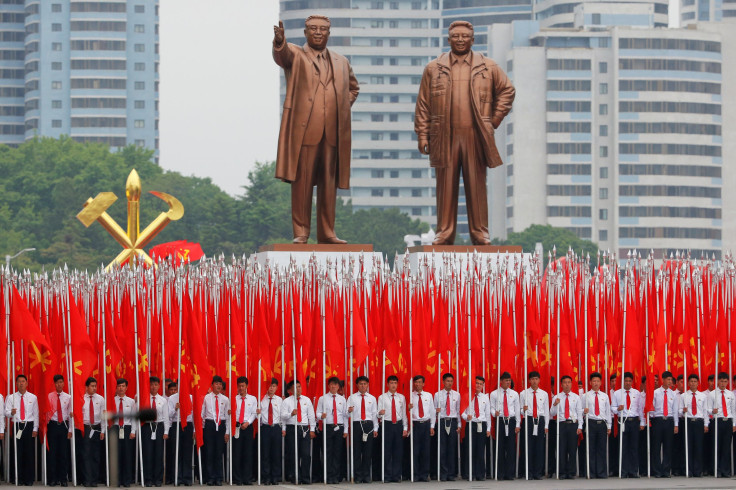North Korea’s Submarine-Launched Ballistic Missile Test Likely Failed

North Korea test-fired a ballistic missile off its eastern coast Saturday but failed in its initial flight stage, according to South Korea. The South’s Joint Chiefs of Staff (JCS) said it appeared to be a submarine-launched ballistic missile (SLBM).
South Korean military said the launch took place at around 11:30 a.m. local time (10:30 p.m. EDT Friday) from a location southeast of the coastal port city of Sinpo, South Hamgyong Province, the Yonhap News Agency reported.
“The SLBM was ejected from the submarine normally, but (we) estimate the initial flight was unsuccessful,” the JCS said in a press release, according to Yonhap.
North Korea has previously test-fired a SLBM in April, declaring it successful in strengthening its ability to counter its enemies. The South, however, said the missile broke into several pieces in mid-flight after flying some 30 kilometers, Yonhap reported. The North had also test-fired a submarine-launched ballistic missile on Dec. 25, however, that test was seen as failure, the Associated Press reported South Korea’s JCS saying.
While Pyongyang already has a considerable arsenal of land-based ballistic missiles, its ability to launch from submarines has been a major cause of worry for neighboring countries as missiles mounted on submerged vehicles are tougher to detect.
Earlier this week, the U.S. Treasury Department blacklisted North Korea’s Kim Jong Un and 22 other officials and state entities for human rights violations— the first time the United States has imposed direct sanctions on the North’s leader.
North Korea described the sanctions on Kim as an “open declaration of war” and warned that it will shut all diplomatic ties with the U.S. unless the blacklisting is revoked, the BBC reported.
The U.S. and South Korea Friday agreed to deploy a missile defense system to counter threats from the North. It is not clear where the Terminal High Altitude Area Defense (THAAD) anti-missile system will be stationed but the AP reported China, Russia and North Korea saying the deployment could help U.S. radars spot missiles in their countries.
© Copyright IBTimes 2025. All rights reserved.






















